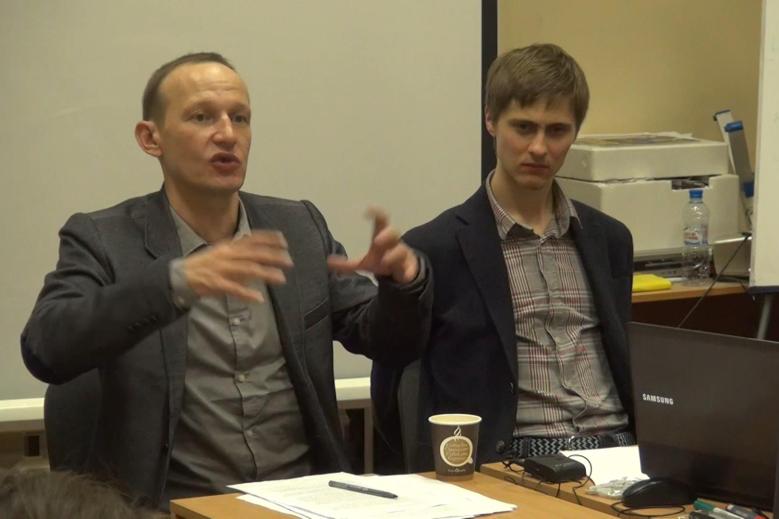LINIS Fellows at Seminar of the Council of Young Scientists Faculty of Sociology and the Center for German and European Studies
April 16, 2014. Peter Meylakhs and Yuri Rykov, LINIS fellows have gaven presentations AIDS Dissidents in the Social Internet Network VKontakte: quantitative and qualitative approaches on the open interdisciplinary seminar Scientific Environment which was organized by the Council of Young Scientists Faculty of Sociology and the Center for German and European Studies.

April 16, 2014. Peter Meylakhs and Yuri Rykov, LINIS fellows have gaven presentations AIDS Dissidents in the Social Internet Network VKontakte: quantitative and qualitative approaches on the open interdisciplinary seminar Scientific Environment which was organized by the Council of Young Scientists Faculty of Sociology and the Center for German and European Studies.
The seminar researchers talked about some of the results of the research project obtained by applying different scientific approaches - qualitative and quantitative. The object of study was the largest AIDS dissident’s group VKontakte, by now numbering 15,000 people.
Peter Meylakhs, using the method netnografii (network ethnography), studied the rhetorical strategies used by dissidents to convince newcomers to the correctness of their views, but this report is devoted to the problem of conflict and power in the group.
Long term study of the dissident group led to the conclusion that the statements of AIDS dissidents on its openness and flexibility are untrue. Conflicts in the community and a rigid authoritarian administration approval indicate the position of intransigence and lack of dissidents on the virtual platform of alternative viewpoints.
Yuri Rykov investigated the structure of the online community of dissidents quantitative methods, including social network analysis. His presentation was devoted to research opportunities that perspective quantitative approach to the study of online communities.
Analysis of community structure showed that it consists of several layers of users, differing in form and intensity of participation, as well as rootedness in networks of friendship. They touched upon the connection virtual power in the community with the communicative activity and social capital users.
Videotape presentations and subsequent discussion is available on the resource Lectorium .